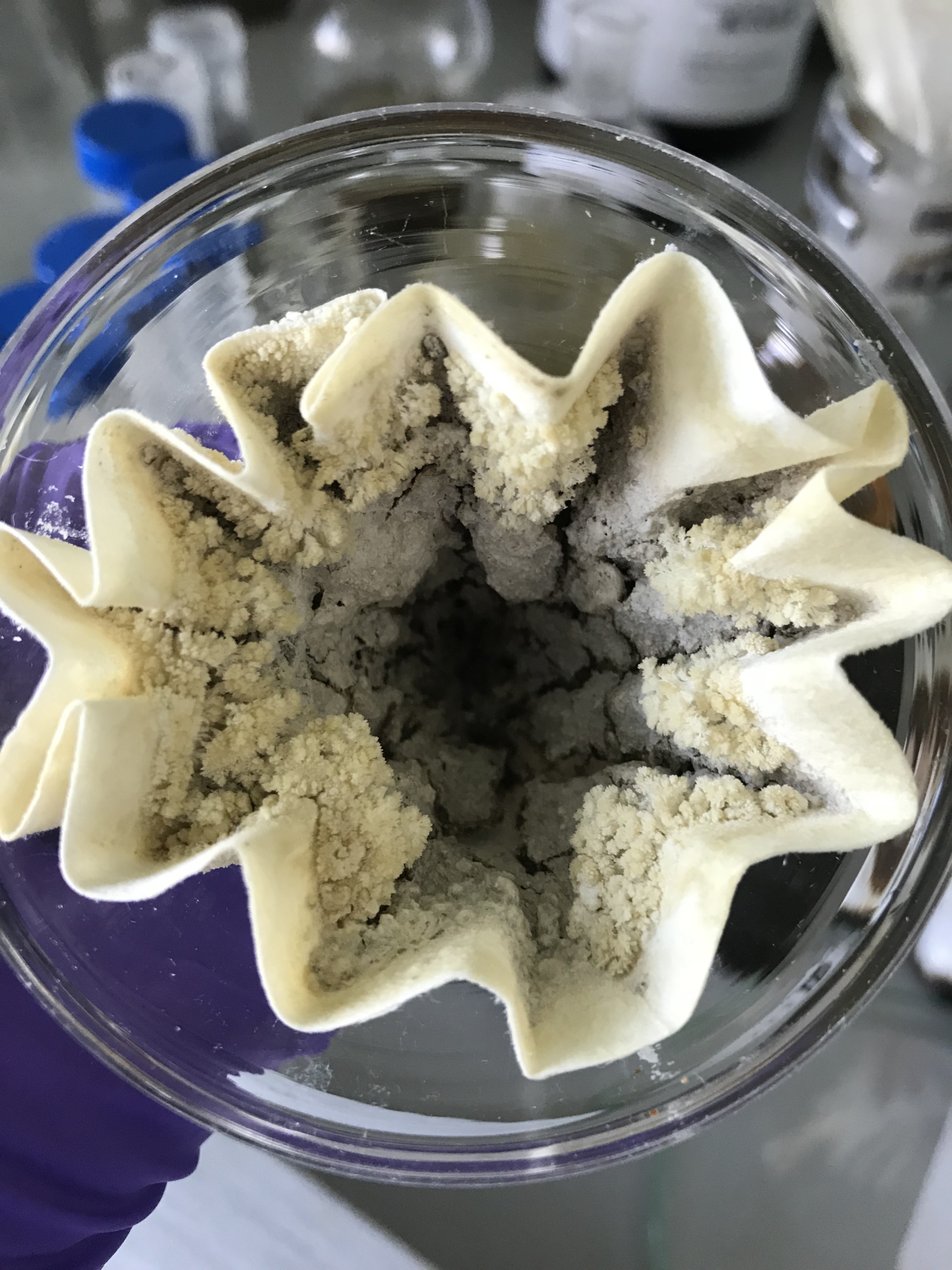The Weird and wonderful world of the Fatberg!
03/07/2019

I joined Cranfield Water department in September 2017, where I am pursuing my EngD as one of the STREAMers. STREAM is the Industrial Doctoral Centre (IDC) for the Water Sector funded by the Engineering and Physical Sciences Research Council (EPSRC) and companies who sponsor research projects. My industrial sponsor is Severn Trent Water. The EngD experience provides a more vocationally oriented approach in comparison to a PhD and is awarded for industrially relevant research. My project aims to establish how FOG (fat, oil and greases) deposits form in the sewers network and how they can be effectively managed using bio-additives.
FOG released to sewer system from commercial and domestic establishments, is a cause of increasing and costly problems in the water sector, as it deposits and accumulates in sewer networks. Congealed with non-flushable items in sewers, FOG forms fatbergs. Fatbergs reportedly lead to sewer overflows and sewer flood events. Since the water companies have limited ability to address the root cause of the problem, a reactive approach is the most frequently applied. Still, mechanical maintenance of the sewers implies a high risk to the public health and the environment. On the other hand, establishment of public awareness and education campaigns, as well as increased usage of grease interceptors within food establishments have been met with limited success. As deposition is likely to happen by different mechanisms, its inhibition should be tackled through mixed methods. The use of bioadditives bring the promise for an effective additional method to traditional sewer cleaning, however to enable the most effective and targeted strategies of FOG bioremediation, the identification and understanding of the processes involved in FOG formation must be gained beforehand.
My research involves laboratory experiments of deposition kinetics and product testing under ideal conditions using synthetic sewage, as well as pilot scale bio-addition trials using real wastewater. The pilot scale is crucial for understanding what restricts the efficacy of bioadditives in complex sewer environment by providing the benchmark line.
The experimental RIG, located at Cranfield Wastewater Treatment Works is a part of an Urban Water Hub and it was funded by the UK Collaboratorium for Research on Infrastructure and Cities (UKCRIC), and it is one of its kind in the UK.
While working in a laboratory I like to capture interesting, intriguing findings on my camera. Those photos help me to draw conclusions, when I am analysing and comparing results. When there has been a call to enter EPSRC’s sixth Science Photo Competition, as a student funded by EPSRC I decided to do so. I have chosen the photo together with my supervisor at that time, Dr Raffaella Villa. We were intrigued how such disgusting thing (sewer fatberg) can have such hide beauty within. This photograph shows the effect of separating FOG deposit using organic solvent, the residues on the filter paper represent non-lipid constituents. When I have learnt about the winning 1st place in the Weird and Wonderful category, I was amazed. I really enjoy raising awareness of the impact of my research within communities and winning definitely helped me doing that.
I am happy with the choices that have led me to where I am today. I persisted through crises of confidence as a student, and before I moved to my current position, I had changed my research topics several times. I have realised that in science, like in life, all the knowledge and skills you gather are transferable. It is important not to shy away from the opportunities. The key to success is an open mind and flexibility.
Categories & Tags:
Leave a comment on this post:
You might also like…
Company codes – CUSIP, SEDOL, ISIN…. What do they mean and how can you use them in our Library resources?
As you use our many finance resources, you will probably notice unique company identifiers which may be codes or symbols. It is worth spending some time getting to know what these are and which resources ...
Supporting careers in defence through specialist education
As a materials engineer by background, I have always been drawn to fields where technical expertise directly shapes real‑world outcomes. Few sectors exemplify this better than defence. Engineering careers in defence sit at the ...
What being a woman in STEM means to me
STEM is both a way of thinking and a practical toolkit. It sharpens reasoning and equips us to turn ideas into solutions with measurable impact. For me, STEM has never been only about acquiring ...
A woman’s experience in environmental science within defence
When I stepped into the gates of the Defence Academy it was the 30th September 2019. I did not know at the time that this would be the beginning of a long journey as ...
Working on your group project? We can help!
When undertaking a group project, typically you'll need to investigate a topic, decide on a methodology for your investigation, gather and collate information and data, share your findings with each other, and then formally report ...
From passion to purpose: My journey at the Pinnacle of Aviation
By: Sultana Yassin Abdi MSc Air Transport Management, Current Student Born and raised in the vibrant landscape of the UAE, with roots stretching back to Somalia, my life has always been ...






